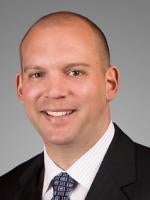On October 1, 2013, the United States Supreme Court agreed to review the “exceptional” case standard for awarding attorneys’ fees in two separate patent-infringement cases. Both cases relate to patentees who are non-practicing entities. The outcome of these cases could potentially deter patent cases brought by non-practicing entities, as prevailing defendants may have an easier time obtaining attorneys’ fees.
Standard of Review
In Highmark Inc. v. Allcare Health Management Systems, Inc., Dkt. 12-1163, filed March 25, 2013, the question presented is “[w]hether a district court’s exceptional-case finding under 35 U.S.C. §285, based on its judgment that a suit is objectively baseless, is entitled to deference.”
Section 285 provides that a “court in exceptional cases may award reasonable attorney fees to the prevailing party.” 35 U.S.C. § 285. A case is “exceptional” if it is objectively baseless and brought in bad faith.
Allcare, a non-practicing entity, sued Highmark, asserting that Highmark’s transaction-processing systems infringed Allcare’s patent, U.S. Patent No. 5,301,105. Highmark fought back, suing Allcare and seeking a declaratory judgment of non-infringement, invalidity and unenforceability of all claims of Allcare’s patent. Highmark moved for summary judgment of non-infringement and prevailed. Subsequently, Highmark moved for an exceptional case determination, seeking attorneys’ fees and sanctions against Allcare pursuant to Section 285 and Rule 11 of the Federal Rules of Civil Procedure. The district court ordered Allcare to pay nearly $5 million in attorneys’ fees and expenses for bringing a baseless suit against Highmark.
On appeal, the Federal Circuit partially reversed the district court’s ruling, holding that a district court’s determination that a case is “objectively baseless” is reviewed without deference, rather than reviewed only for clear error. According to Highmark, this is a departure from the Federal Circuit’s own precedents. Upon review, the Federal Circuit found that some of Allcare’s claims were not objectively baseless.
The Supreme Court granted certiorari to decide whether the standard of review of the “objectively baseless” component should be as a “matter of law,” which is without deference, or as a “finding of fact,” which can be set aside only for “clear error,” and therefore entitled deference.
Standard for Exceptionality
In the second case, Octane Fitness, LLC v. Icon Health & Fitness, Inc., Dkt. 12-1184, filed March 27, 2013, the question presented is whether “the Federal Circuit’s promulgation of a rigid and exclusive two-part test for determining whether a case is ‘exceptional’ under 35 U.S.C. § 285 improperly appropriates a district court’s discretionary authority to award attorney fees to prevailing accused infringers in contravention of statutory intent and this Court’s precedent, thereby raising the standard for accused infringers (but not patentees) to recoup fees and encouraging patent plaintiffs to bring spurious patent cases to cause competitive harm or coerce unwarranted settlements from defendants.”
Icon, a non-practicing entity, filed suit against Octane, alleging that Octane’s Q45 and Q47 elliptical machines infringed on Icon’s patent, U.S. Patent No. 6,019,710. The claims at issue focus on the “linkage system” connecting the foot rail to the frame via the “stroke rail.” The District Court concluded that the “stroke rail” and “means for connecting” limitations were absent in the Q45 and Q47 machines and granted Octane’s motion for summary judgment of non-infringement. In addition, Octane moved for an exceptional case determination, seeking attorneys’ fees and sanctions against Icon pursuant to Section 285. The district court denied Octane’s motion, finding that Icon’s suit was not objectively baseless and was not brought in bad faith.
The Federal Circuit affirmed the district court’s judgment with respect to both patent infringement and Octane’s motion for attorneys’ fees. With respect to Octane’s argument that the case was exceptional for purposes of a fee award, the Federal Circuit stated that the district court “did not err in denying Octane’s motion” and that it found “no reason to revisit the settled standard for exceptionality.”
The Supreme Court granted certiorari to decide whether the Federal Circuit’s two-step test for determining that a case is “exceptional” for the purpose of awarding attorney’s fees to a prevailing accused infringer is an appropriate interpretation of Section 285. Octane argues that the current standard—which requires that an “exceptional” case must be both objectively baseless and brought in bad faith—is contrary to the intent of the statute. Moreover, Octane argues, the current standard requires a higher showing for a prevailing accused infringer than it does for a prevailing patentee. In addition, Octane proposes that, instead of the current standard, courts should award attorney’s fees in cases where the losing party had an “objectively low likelihood of success.”


 />i
/>i

